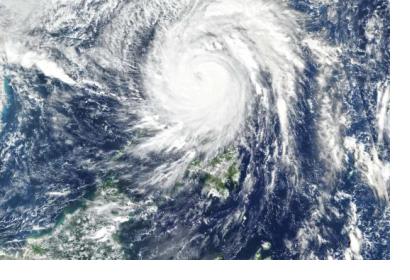The United Nations Office for Outer Space Affairs (UNOOSA), through its United Nation Platform for Space-based Information for Disaster Management and Emergency Response (UN-SPIDER), organized the United Nations International Conference on Space-based Technologies for Disaster Risk Reduction - "Lessons learned during the unprecedented pandemic situation" on 24-25 November 2020. The Conference was co-organized with the United Nations Office for Disaster Risk Reduction (UNDRR). It was conducted as an online event. Presentations delivered at the conference are available on the event page alongside recordings of the sessions.
The two-day long conference was attended by over 200 people from 50 countries representing over 110 organizations. Thirty speakers shared their experiences to contribute to four unique sessions of the Conference.
Session 1 focussed on the lessons learned during an unprecedented pandemic situation by discussing experiences from countries such as India and Japan on how they handled recent disasters during the pandemic situation and provided insight into emerging policy aspects advocated by UN agencies such as UNESCAP, UNDRR and UNDP to prepare well for the crisis within a crisis.
Session 2 discussed space technology contribution during the situation of the pandemic and contributed to Space4Health initiative of UNOOSA. The session demonstrated space technology applications during the COVID-19 pandemic, past epidemics, contribution of space technologies in contributing to global health and linkages with disaster management. The session also discussed related issues such as the ethical use of space-based technologies and unlocking the power of Earth observation through social analytics.
Session 3 talked about space for climate adaption and disaster resilience contributing to the Space for Climate Action initiative of UNOOSA. The session provided approaches to using space-based technologies for the transfer of risk arising due to climate-related disasters and in assisting in sanitation and water management and flood management. The session also advocated integrated use of space-based tools with data collected from other sources, including drones.
Session 4 provided highlights of the initiative of the UN-SPIDER network in the use of space-based technologies in disaster management. The representatives of various countries that are receiving technical advisory support from UN-SPIDER presented an update on their activities. Representatives of the regional support offices of UN-SPIDER demonstrated their initiatives and contribution to the UN-SPIDER programme. The session also provided a detailed account of the Massive Open Online Course (MOOC) on Geospatial Applications in Disaster Risk Management jointly conducted by UNOOSA and the Centre for Space Science and Technology Education for Asia and the Pacific that benefitted to over 25,000 people from over 140 countries.
The Conference brought together technology providers and end-users for sharing valuable experiences and information that is critical to the current pandemic situation.

